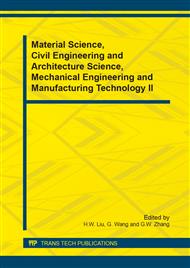p.1566
p.1570
p.1576
p.1580
p.1586
p.1590
p.1594
p.1599
p.1603
How Far is the Employment Transformation of “the Second-Generation Migrant Workers”
Abstract:
The objective of this discussion is to increase the employment quality of “the second-generation migrant workers”. By means of descriptive empirical analysis and theoretical analysis method, the paper conducts the research on the problem of employment quality of new generation migrant workers and the constraint factors on employment transformation. The findings show that the accumulation of income gap between urban and rural areas makes “the second-generation migrant workers” new proletarian class. Triple constraints such as human capital, social capital and psychological capital prolong their employment transformation. Dispatching employment gnaws on migrant workers’ labor rights and interests as a wolf in sheep’s clothing. Social discrimination intensifies binary segmentation of urban and rural labor market. It is difficult for migrant workers to achieve professional development.
Info:
Periodical:
Pages:
1586-1589
Citation:
Online since:
September 2014
Authors:
Price:
Сopyright:
© 2014 Trans Tech Publications Ltd. All Rights Reserved
Share:
Citation:


